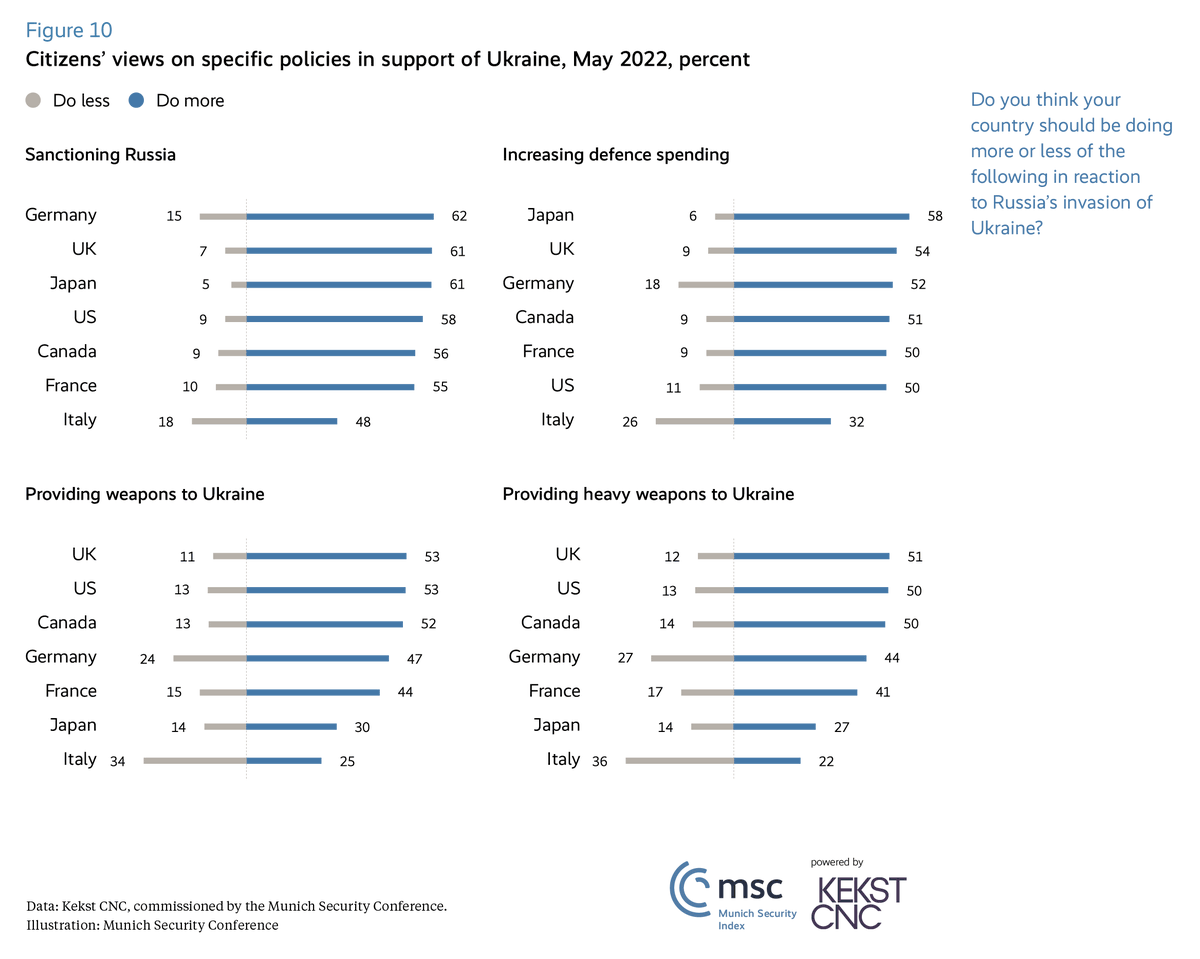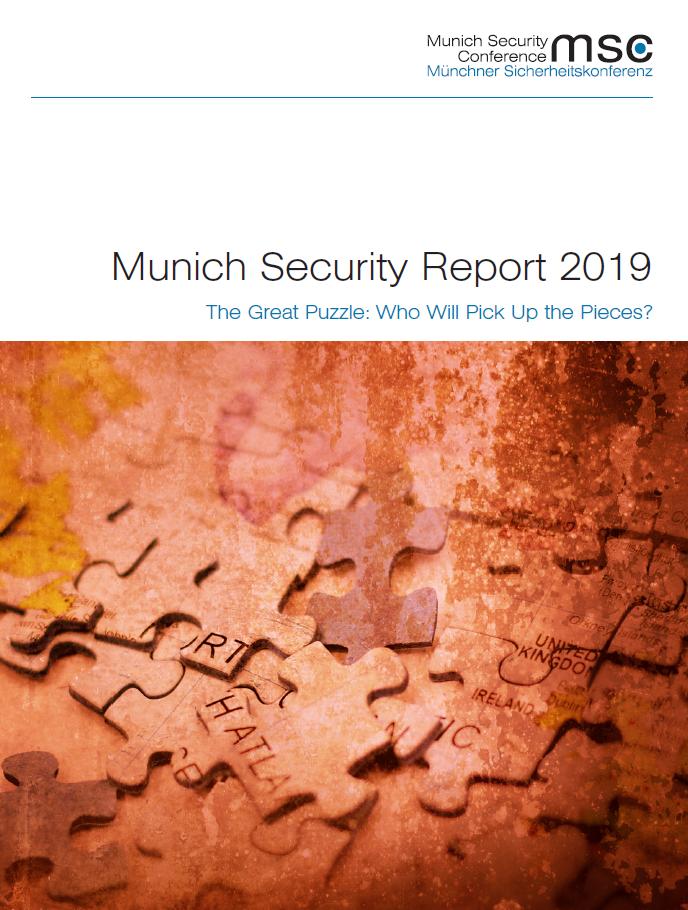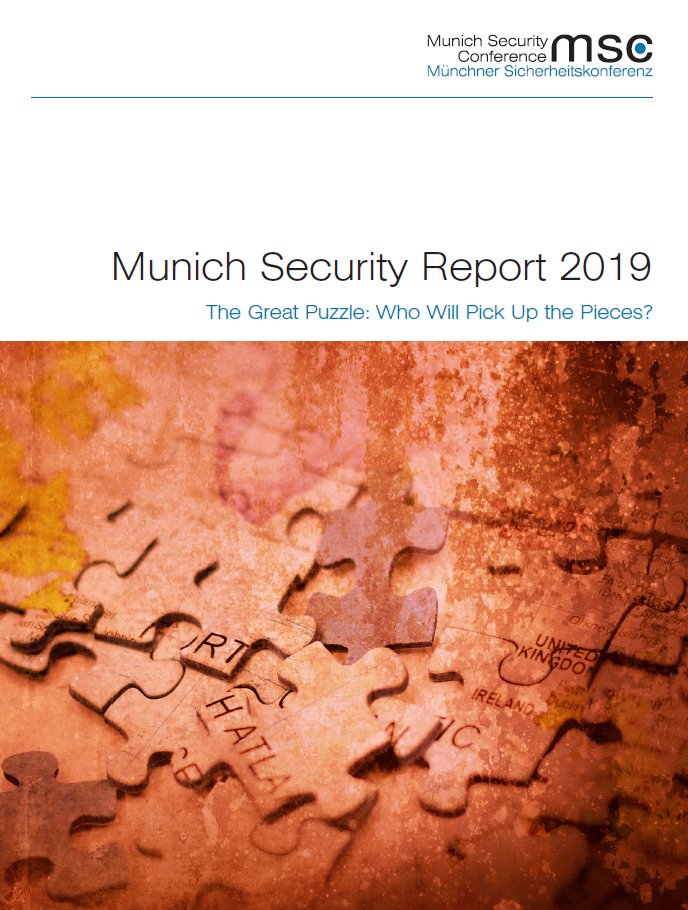
As our new Munich Security Index, based on representative surveys in all G7 countries, shows, #Russia's invasion of Ukraine has dramatically altered public risk perceptions. A🧵... 1/8 

Perhaps unsurprisingly, #Russia is now the top risk in all G7 countries, apart from Italy, while #Ukraine is seen much more positively than in November. Absolute majorities in all G7 countries believe that “we are entering a new Cold War with Russia.” 2/8 



Strikingly, #Russia's full-blown war on #Ukraine has triggered a convergence of views: People in all G7 countries have become more willing to oppose Russia economically and militarily. In fact, Italians in May were more hawkish than people in the UK were in November 2022! 3/8 

Respondents generally give very positive assessments of their own government’s and their allies’ responses to the Russian invasion – individually and as part of the EU, NATO and the #G7. But look at the interesting details! 4/8 

However, differences between continental Europeans (+ Japan) and the English-speaking #G7 members remain - for instance when considering the delivery of heavy #weapons. Italy is a bit of an outlier in general. 5/8 

Quite strikingly, the public seems less concerned about escalation than the elites. Relative (🇮🇹🇩🇪🇫🇷🇬🇧) or absolute (🇨🇦🇺🇸🇯🇵) majorities agree that “#NATO members should push back harder against Russia even if the risk of military escalation between NATO and Russia increases.” 6/8
While many citizens are undecided, in all four eFP lead nations, relative majorities (🇨🇦: 43 %, 🇬🇧: 46 %, 🇩🇪: 48 %, 🇺🇸: 49% ) think that their country “should massively increase its military presence at #NATO’s eastern border.” #NATOSummit 7/8
More data and details are available in the Munich Security Brief I co-authored with @SophEisentraut. Have a look at the @MunSecConf website. 8/8 securityconference.org/en/publication…
• • •
Missing some Tweet in this thread? You can try to
force a refresh









